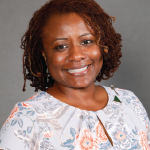As president of the Georgia Society of Rheumatology (GSR), Wambui Machua, MD, a rheumatologist with Piedmont Physicians Rheumatology, Atlanta, oversees a membership of 90 rheumatologists, six orthopedists, two nurses, 85 physician assistants and 27 fellows and residents. According to Dr. Machua, the GSR, founded in 1967, continues to pursue its original mission of providing educational…








